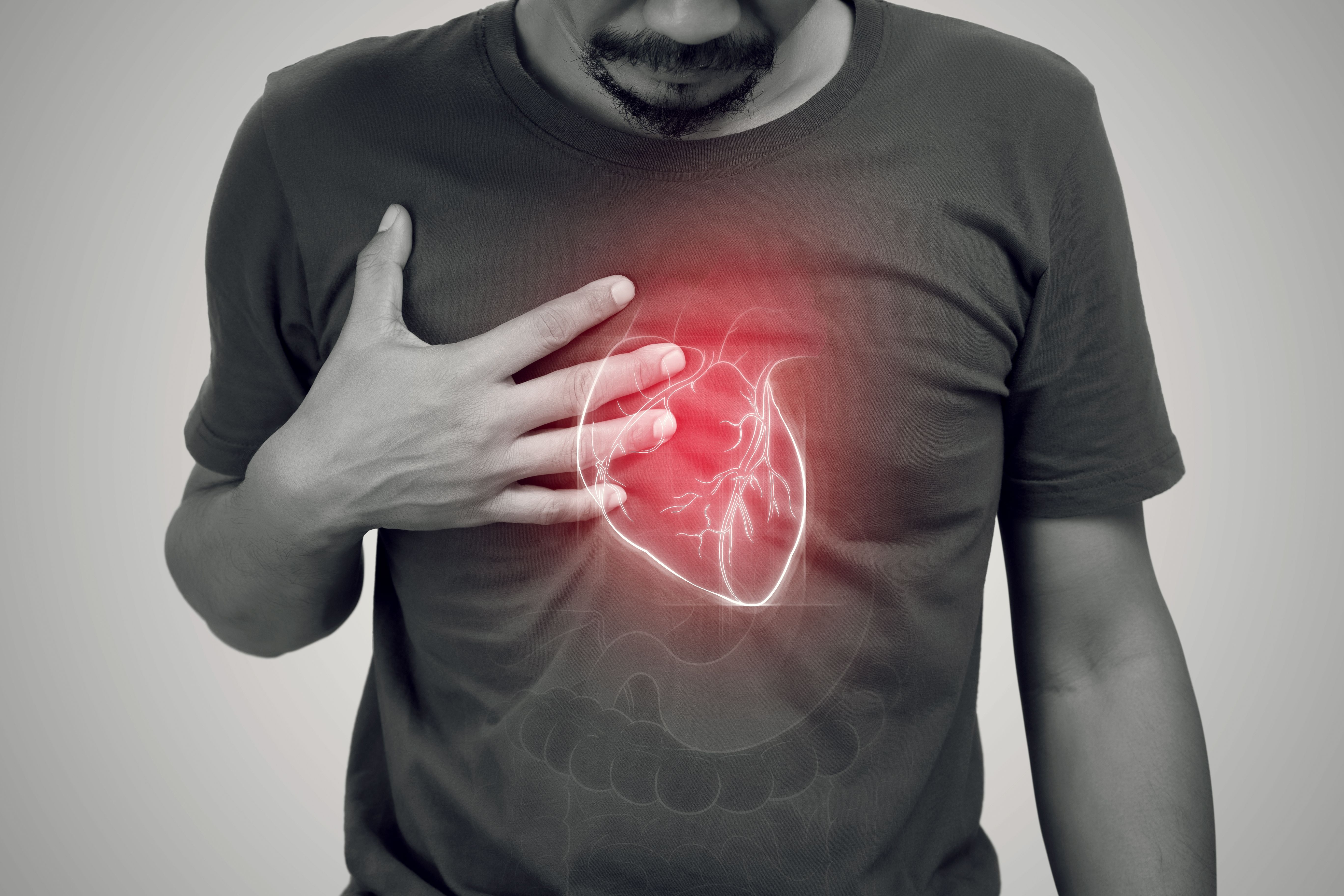All you need to know about heart failure: facts and figures

A heart failure means that your heart is not working as well as it should and needs treatment to help it work better. Here are figures and facts about the disease.
Heart failure in figures1-3
Heart failure is a condition where your heart cannot pump blood around your body as well as it should. It does not mean your heart has stopped working but you may need support to help it work better.

Approximately 1 in 4 persons will develop heart failure in their lifetime.2
Heart failure affects more than 64 million people worldwide. Prevalence estimates around the world range from 1% to 3% of the overall population. Globally, it is increasing and varies greatly by country. Indeed, heart failure prevalence is reportedly:
- Lowest in countries such as Thailand, South Korea, Japan, and the Philippines, ranging from 0.4% to 2.0%
- Highest for countries such as Spain, Taiwan, Indonesia, and Portugal, ranging from 4.4% to 6.8%
In the overall population, heart failure is most prevalent among adults over 60 years old. And the incidence and prevalence are higher among Black individuals compared with other racial and ethnic groups.
Concerning the ratio women/men, the global number of heart failure cases has increased with more heart failure cases in women than in men. There are also important sex differences in heart failure risk factors. Indeed, diabetes mellitus, hypertension, and tobacco use have a stronger association with heart failure in women, while coronary heart disease has a stronger association with heart failure in men.
What are the symptoms of heart failure?3,4

The most common symptoms of heart failure are:
- New persistent cough
- Shortness of breath when you are resting or being active
- Swelling of the feet, ankles, legs, abdomen or in the lower back
- Fatigue, which is when you feel unusually tired and weak
Some people with heart failure may have other symptoms such as memory problems, difficulty concentrating, or feeling lightheaded.
You should see your GP as soon as you can if you experience any of these symptoms. If you are struggling to breathe or have chest pain, call your local emergency services for immediate medical assistance.
What about the heart failure stages?3,4
There are 4 stages or classes of heart failure. These heart failure stages describe how serious your disease is. When you are diagnosed, your doctor may tell you which stage you have based on your symptoms of heart failure, among:
- Stage 1 - No symptoms: your heart is not working as well as it should, but you do not have symptoms during everyday activity. You can usually do everything you want to and might have as much energy as you would expect. You may still need medication or other treatment to reduce the risk of your condition getting worse. Occasionally, some people have 1 or 2 symptoms that will need to be treated or controlled.
- Stage 2 - Symptoms of moderate exertion: you feel normal when resting, but physical activity causes symptoms. For example, you get breathless more than usual, when you are gardening, shopping, or doing housework.
- Stage 3 - Symptoms of mild exertion: you feel normal when resting, but a little physical activity causes symptoms. You are quite limited in what you can do. It does not take much effort to make you feel exhausted and too breathless to carry on.
- Stage 4 - Symptoms at rest: you cannot do any physical activity without symptoms and may feel uncomfortable while resting. You become breathless even when you are not being particularly active, like when walking around at home or even when sitting down. You may find it difficult to look after yourself properly on your own and need to sleep sitting up because you get out of breath or cough when you lie down.
Heart failure treatment options3,4
With good management of the symptoms of heart failure and the right treatment, many people can lead a full and active life.
There is no cure for heart failure, but available treatments can help manage symptoms and improve your quality of life. Your doctor will discuss heart failure treatments with you depending on what stage they have diagnosed you with.
Heart failure treatments include:
- A pacemaker, which helps control your heart rate to reduce the demand on your heart.
- An implantable cardioverter–defibrillator or ICD, which detects and treats dangerous, irregular heartbeats.
- Heart surgery, the aim of which is to improve blood flow to your heart or to repair and/or replace a faulty valve that is putting strain on your heart.
- Medication: to protect and improve your heart function, improve your symptoms, and reduce fluid buildup. These medications include the following:3
- Diuretics, also called water tablets, help your kidneys get rid of excess fluid by making you pass more urine. As a result, your heart does not have to work as hard to pump blood around your body. Diuretics can reduce swelling in your ankles, legs, and other parts of your body; improve the symptoms of shortness of breath; and help you to lower your blood pressure levels.
- Angiotensin-converting enzyme inhibitors or ACE inhibitors have a relaxing effect on the arteries, which makes it easier for your heart to pump blood around your body. They can prevent your heart failure from getting worse and can help prevent symptoms of heart failure, lower your blood pressure, and increase the exercise you can do.
- Angiotensin II receptor blockers or ARBs work in an equivalent way to ACE inhibitors but are less likely to cause a troublesome cough.
- Angiotensin receptor-neprilysin inhibitor or ARNI can increase life expectancy and help with the symptoms of heart failure. It works by widening your blood vessels, increasing blood flow, and lowering blood pressure to reduce the strain on your heart. It is not suitable for everyone, but your doctor may propose this medicine to you if you still have symptoms despite already receiving treatment, such as an ACE inhibitor or ARB, and your heart is pumping a reduced amount of blood around your body.
- Beta-blockers help to prevent your heart from beating too quickly and too forcefully, reducing the work it must do. Beta-blockers can help keep you well, prevent your condition from getting worse, control heart rhythm problems, and increase your chances of living longer as well as the amount of exercise you can do.
- Mineralocorticoid receptor antagonists or MRAs, also called aldosterone antagonists, are used to help prevent and treat the buildup of fluid in your body. They work by helping to block the effect of a hormone called aldosterone. They also have a mild diuretic effect. They can help to slow down the progress of heart failure, help to improve life expectancy, and are often taken together with other heart failure medicines.
- Ivabradine can help with the symptoms of heart failure. It slows your heartbeat so that your heart does not have to work so hard. Your doctor may prescribe ivabradine if you still get symptoms even though you are taking other medicines and if your heart beats too quickly to treat your heart failure, or you cannot take a betablocker because it causes side effects.
- Digoxin slows down and strengthens your heartbeat. It can control irregular heart rhythms and help your heart pump blood better.
- Sodium-glucose co-transporter-2 inhibitors or SGLT2i, also known as “gliflozins”, were first used for people with type 2 diabetes. They have been found to reduce the development and progression of kidney disease and heart failure, even in those without diabetes.